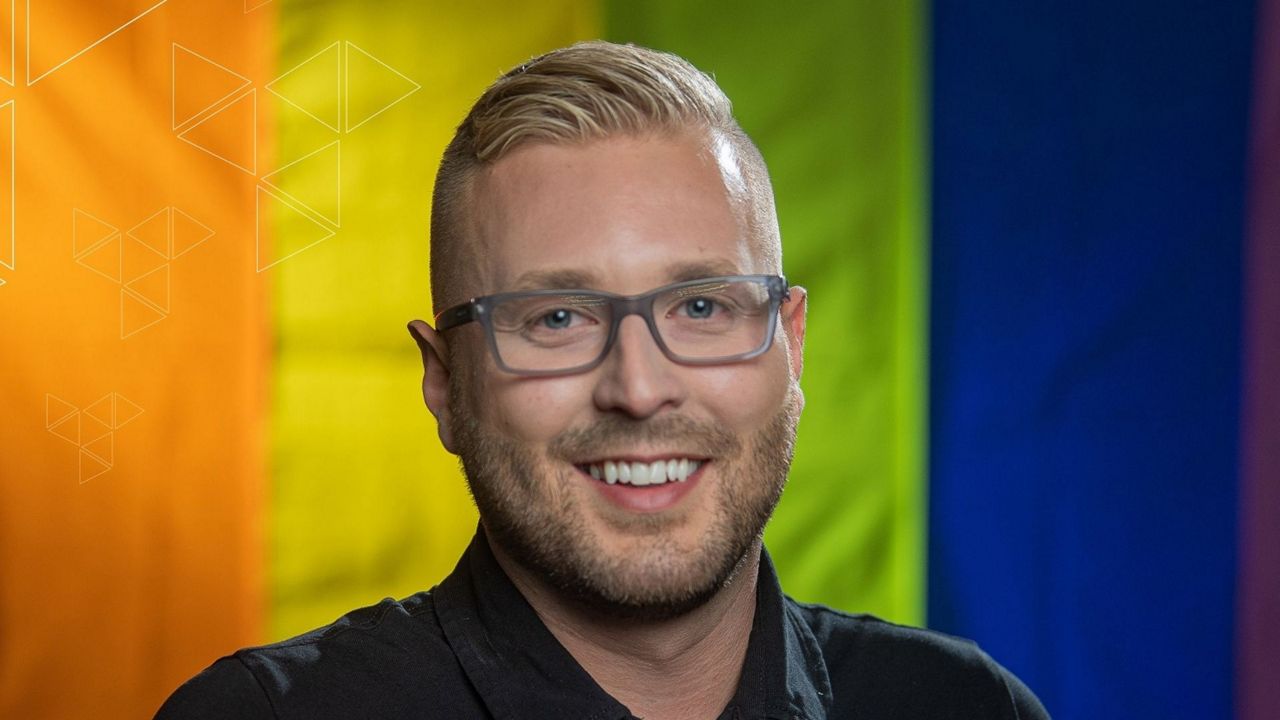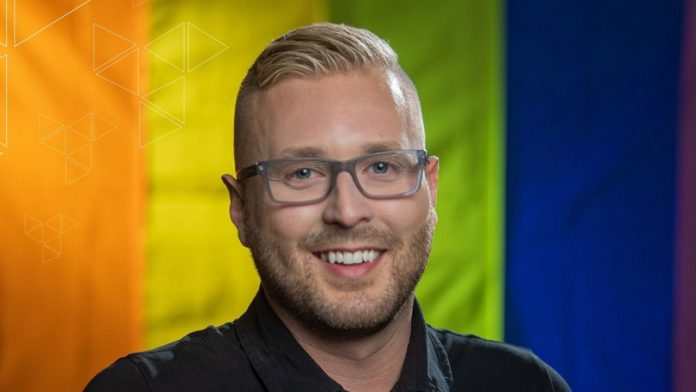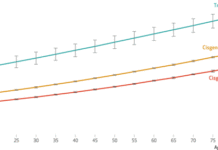
AKRON, Ohio — The Akron region’s first comprehensive LGBTQ+ needs assessment is underway, capturing data that can potentially inform the work of hundreds of local agencies serving this growing population.
Nearly 600 people have filled out the Greater Akron LGBTQ+ Community Needs Assessment in its entirety since it launched in June during the Akron Pride Festival, said Andrew Snyder, research program coordinator with Kent State University ‘s College of Public Health. Snyder is completing a doctorate in LGBTQ+ health.
Anyone in the LGBTQ+ community who lives in Summit, Portage, Stark and Medina counties, or has a connection to Akron, can fill out the online survey, Snyder said. A connection to Akron can manifest in many ways.
“Maybe they grew up in Akron and moved to Cincinnati. Their experiences are clearly very valid,” he said. “There are people who live in rural spaces, and they have a non-binary child. So they bring them to Highland Square to trick-or-treat because they feel it’s a more inclusive space for their kids to recreate and enjoy that holiday. So we definitely want to hear from them.”
What’s important is gathering comprehensive local data, Snyder said, because access to local research empowers the entire community.
“We don’t have a lot of locally generated data so we have to trust either state or national resources and who’s to say, you know, even just looking at our area, being LGBTQ and homeless as a child is very different in downtown Akron than it is in Hiram?” he said. “I think it’s really important that we recognize that we do have experts right here.”
So far, 114 agencies in the four counties of the study are involved — from hospital systems and social services agencies to Leadership Akron and the Akron Chamber of Commerce, he said.
“I believe that’s why they’ve been so supportive of the project is, for years, I think they’ve been wanting this data,” he said.
Julie Jones, president of the Gay Community Endowment Fund of Akron Community Foundation, said the research would be important to the fund’s work.
“We have a slight handle on what goes on in the community, but clearly there’s so much hidden in our community that we don’t have access to, either relationally or statistically or anecdotally,” Jones said. “So this study, we think, is unbelievably important for us to understand who we can really help, where our funds can make the biggest difference.”
The research aims to shine a light on the variables that impact this population in key areas, including health, safety and law enforcement, neighborhood and environment and economic stability, Snyder said. The findings are expected to help researchers better describe the population’s demographics, which are currently estimates.
“That’s really what this whole project is about, just listening and giving people a chance to talk about their life and what’s hard for them and what help they could use,” he said.
Snyder points to his own experience, describing himself as a fairly privileged, gay, white man who several years ago moved to attend Kent State from rural Salem, Ohio, where there was no LQBTQ+ community.
“There are a lot of experiences I’ve had to deal with, but that doesn’t mean that I’m an expert on what it’s like to be a gay, biracial mother with an adopted white child living in Silver Lake,” he said.
Snyder, who has an undergraduate degree in nursing, was taught patients are fully assessed before treatment. That helped spark the idea of conducting comprehensive research, he said.
“So rather than doing the little variable things that seem mildly insignificant, I prefer to do community-based research where you’re out and working with people,” he said. “So everything else we go off is valid and evidence-based rather than just based on my personal perception.”
Healthcare agencies will be able to use the data to shape services for LGBTQ+ health, which is a newer field, he said, referencing Akron Children’s Hospital’s Center for Gender Affirming Medicine and Summa Health System’s Pride Clinic.
So far, funding for the project has come from mostly corporate, philanthropic and government entities.
With about $5,000 to go before reaching the funding goal for the research, Snyder opened giving opportunities to people to donate smaller amounts, possibly in honor or memory of someone close to them, he said.
“It’s a personal kind of thing that I feel is super important,” he said. “So the goal there is really just to let the community close the gap.”
Those acknowledgements will be printed in a final needs assessment report to the community, he said.
To keep the work relevant, a website is planned so the data is accessible and can be updated, he said. A local organization will be chosen to serve as a kind of steward for the work going forward, he said.
Part of the goal of the survey is to help people understand there are like-minded others in this community, Jones said.
“Maybe there’s a different way to connect to the community that you didn’t see before,” she said. “We’re sort of hoping it pulls people out of the woodwork. It also will show the greater community how powerful our community is, or could be.”
The needs assessment will remain in the data-gathering phase through December. The data will be analyzed, evaluated and published eventually.
The survey takes about 30-40 minutes to complete. To take the survey, text “SURVEY” to PRIDE 22266. For more information, call 330-672-7330 or send an email.








